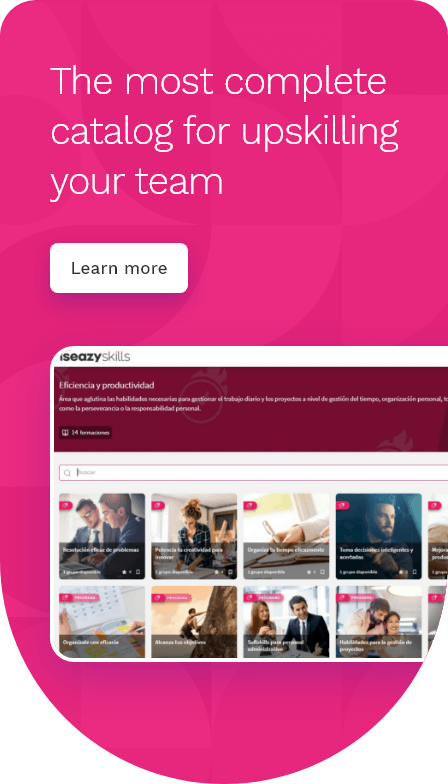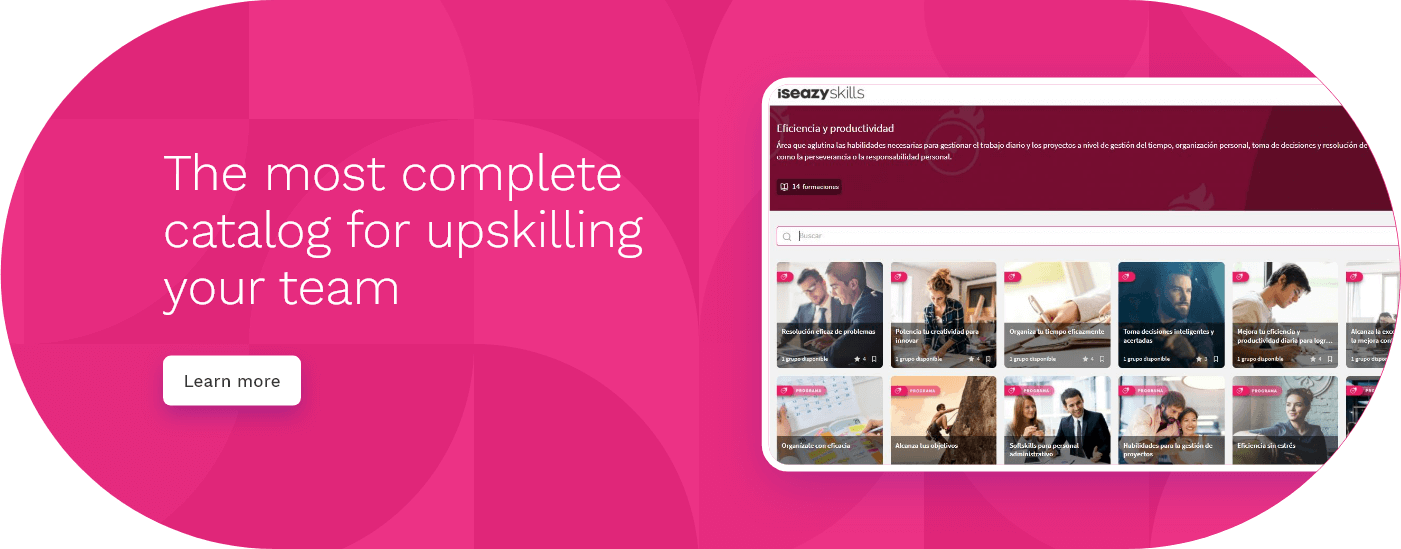Table of contents
ToggleIn a constantly evolving job market, attracting and retaining the best professionals is one of the main goals and challenges of modern companies. This is where the concept of learnability comes into play, a methodology that is crucial in the strategy for employability, job performance, and internal decision-making.
Promoting this method of continuous learning will yield significant results among your collaborators. Keep reading as we explain everything you need to know to promote it.
What is Learnability?
The idea of learnability refers to the professionals’ capacity and willingness to learn quickly and effectively, taking advantage of the resources provided by organizations. This concept emerges as a response to the demands of the new society facing the scenario of digital transformation that organizations are experiencing, and it has gained more prominence with the rise of remote work.
The arrival of the fourth industrial revolution is undermining the popularity of some of the most demanded skills to date, resulting in the development of a new competency map. Most of these skills are related to new technological needs, but others involve cognitive abilities such as creativity, emotional intelligence, or leadership, soft skills that machines cannot replicate.
In this changing and adaptive landscape, the concept of learnability becomes truly indispensable. However, fostering skills, acquiring new ones, and doing so swiftly and effectively require a great capacity for learning, but above all, a willingness to stay updated. Therefore, CEOs, HR and training managers, and all those responsible for internal talent development must ensure that the individuals in their organization acquire the skills they need for their jobs. Remember that, as writer Brian Herbert pointed out, the ability to learn is a gift; the skill of learning is an ability, and the will to learn is a choice.
Benefits of Learnability at Work
Promoting Learnability within your company can lead to highly beneficial changes. Here are some advantages of embracing this methodology:
- Swift adaptation to changes: Employees with high learnability can adapt quickly to changes in the market, technology, or business environment, enabling the company to remain agile and competitive.
- Continuous performance improvement: By promoting constant learning, employees can continually enhance their skills and knowledge, resulting in individual performance improvement and, ultimately, better business performance.
- Innovation and creativity: Learnability fosters openness to new ideas and encourages a creative approach to problem-solving.
- Reduced training costs: Employees with high learning capacity can acquire new skills and knowledge more quickly and efficiently, reducing the need for expensive, extensive training programs.
- Attraction and retention of talent: Companies that promote learnability tend to attract and retain high-level talent, as employees see growth and professional development opportunities within the organization.
- Learning culture: Promoting learnability creates a culture of learning within the company, where the pursuit of knowledge and continuous improvement become core values.
- Improved productivity: Employees with high learning capacity are more efficient in performing tasks and problem-solving, which increases the overall productivity of the organization.
- More effective problem-solving: Learnability develops stronger problem-solving skills, enabling employees to tackle complex challenges more effectively and find innovative solutions.
Learnability is an essential skill for the long-term growth, adaptability, and success of a company. By fostering an environment conducive to continuous learning, organizations can reap numerous benefits that will enhance their performance and competitiveness in the market.
How to Foster Learnability among Workers
Personalize learning
It is not enough to include training programs in digital and “human” skills to have qualified professionals. Nowadays, the concept of learnability cannot be understood without personalization. The job market has changed, and employees have different needs, so they demand tailored training that adapts to their new habits.
Offer engaging content to employees
In addition to personalization, the content you provide must be interesting and valuable to your employees. Through microlearning and interactive resources, you can transform learning into an enjoyable experience that produces better results.
Create a flexible training plan
Flexible training means that employees can carry it out from anywhere or any device and on their own terms. Offering them autonomy over their learning experience is another way to boost motivation and strengthen learnability in your company.
Just like Learnability, you can develop various skills with innovative resources. That’s why you need to know about isEazy Skills, a comprehensive catalog of courses that will take your team to another level.
Take a free trial and enjoy all its benefits!













